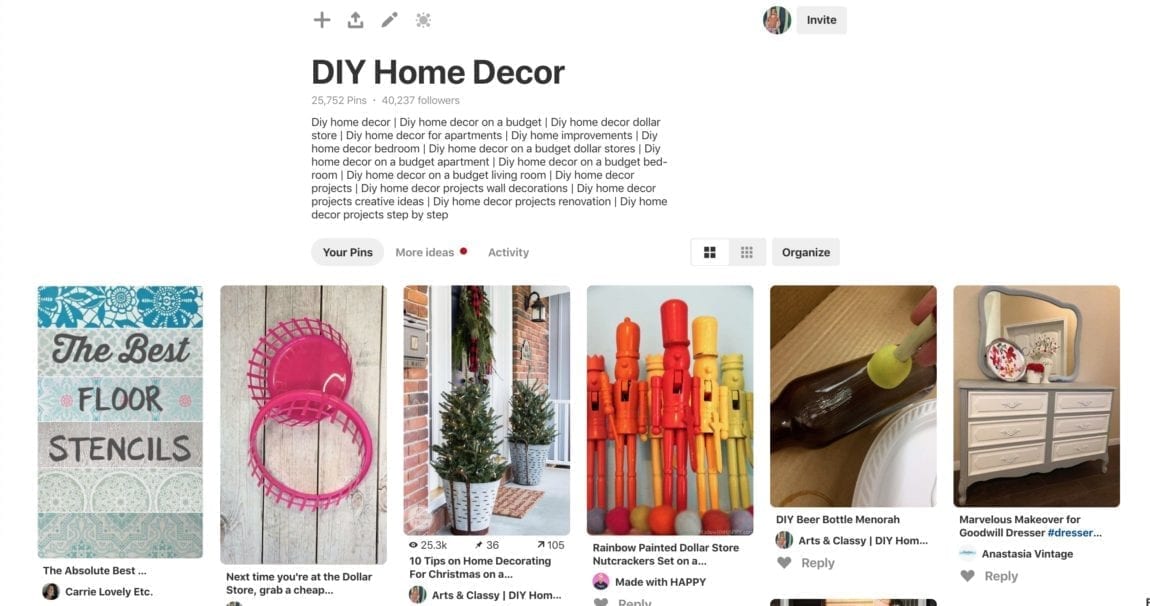The World of Home Decor Group Jobs: A Comprehensive Guide
Related Articles: The World of Home Decor Group Jobs: A Comprehensive Guide
Introduction
With enthusiasm, let’s navigate through the intriguing topic related to The World of Home Decor Group Jobs: A Comprehensive Guide. Let’s weave interesting information and offer fresh perspectives to the readers.
Table of Content
The World of Home Decor Group Jobs: A Comprehensive Guide

The home decor industry is a vibrant and ever-evolving sector that offers a diverse range of career opportunities. From designing breathtaking spaces to crafting intricate furniture pieces, individuals with a passion for aesthetics and a keen eye for detail find fulfilling careers in this field. This article delves into the various facets of home decor group jobs, providing a comprehensive overview of the roles, responsibilities, skills, and benefits associated with this dynamic industry.
Understanding Home Decor Group Jobs: A Multifaceted Landscape
Home decor group jobs encompass a broad spectrum of professions that contribute to the creation and realization of beautiful and functional living spaces. These roles are often collaborative, requiring individuals to work effectively within teams to achieve shared goals.
Key Roles in Home Decor Group Jobs:
- Interior Designers: These professionals are responsible for conceptualizing and executing the overall design scheme of a space, taking into account the client’s needs, budget, and desired aesthetic. They create floor plans, select furniture, fabrics, and lighting, and oversee the project from conception to completion.
- Decorators: Decorators focus on the aesthetic aspects of a space, selecting and arranging furniture, artwork, accessories, and textiles to create a cohesive and visually appealing environment. They often work under the guidance of an interior designer, specializing in specific areas like window treatments, color palettes, or furniture placement.
- Furniture Designers: These professionals create functional and visually appealing furniture pieces, taking into account ergonomics, material properties, and manufacturing processes. They may work for furniture manufacturers, design studios, or independently, developing designs for a wide range of furniture types, from chairs and tables to beds and cabinets.
- Textile Designers: Textile designers focus on the creation and development of fabrics, patterns, and textures for use in home decor. They work with different fibers, weaving techniques, and printing methods to create unique and aesthetically pleasing textiles for upholstery, curtains, rugs, and other decorative elements.
- Lighting Designers: Lighting designers specialize in creating effective and visually appealing lighting schemes for interiors. They consider factors such as natural light, artificial light sources, and the desired ambiance to create a balanced and functional lighting plan.
- Visual Merchandisers: These professionals create visually appealing displays and presentations of home decor products in retail settings. They understand the principles of visual merchandising, utilizing color, lighting, and product placement to attract customers and enhance the shopping experience.
- Home Staging Professionals: Home stagers prepare homes for sale by strategically arranging furniture, accessories, and artwork to highlight the property’s best features and create a welcoming and appealing atmosphere for potential buyers.
- Sales Representatives: Sales representatives in the home decor industry work to connect with clients, understand their needs, and present products and services that meet their requirements. They may work for furniture stores, design studios, or manufacturers, providing expert advice and building relationships with customers.
Essential Skills for Success in Home Decor Group Jobs:
- Creative Vision: A strong sense of aesthetics, a keen eye for detail, and the ability to translate ideas into tangible designs are crucial for success in home decor.
- Technical Skills: Knowledge of design software, drafting, and technical drawing is essential for creating and communicating design concepts effectively.
- Communication Skills: The ability to communicate effectively with clients, colleagues, and vendors is critical for understanding their needs, presenting ideas, and ensuring smooth project execution.
- Project Management Skills: Organizing tasks, managing timelines, and working within budgets are essential for successful project completion.
- Problem-Solving Skills: The ability to identify and solve design challenges, adapt to changing client needs, and find creative solutions is crucial for success in this dynamic field.
- Business Acumen: Understanding the business aspects of the home decor industry, including pricing, marketing, and sales, is essential for those seeking to build a successful career.
Benefits of a Career in Home Decor Group Jobs:
- Creative Fulfillment: Home decor jobs offer a unique opportunity to express creativity and make a tangible impact on people’s lives by transforming spaces into beautiful and functional environments.
- Variety and Challenge: The ever-changing trends and demands of the home decor industry offer constant opportunities for learning, growth, and new challenges.
- Personal Growth: Working with clients, understanding their needs, and collaborating with a team fosters personal growth, communication skills, and problem-solving abilities.
- Impact on Lives: Home decor professionals play a significant role in creating spaces that enhance people’s well-being, comfort, and enjoyment of their homes.
- Evolving Industry: The home decor industry is constantly evolving, offering exciting opportunities for innovation, entrepreneurship, and career advancement.
FAQs on Home Decor Group Jobs
Q: What education or training is required for home decor group jobs?
A: The required education and training vary depending on the specific role. Interior designers typically need a bachelor’s degree in interior design or a related field, while decorators may have a degree in design or art or gain experience through apprenticeships. Furniture designers often have a degree in industrial design or a related field, while textile designers may have a degree in textile design or fashion design.
Q: Are there any licensing requirements for home decor group jobs?
A: Some states require interior designers to be licensed, while others do not. Licensing requirements typically involve education, experience, and passing an exam. It is essential to research the specific requirements for the state in which you plan to practice.
Q: What are the average salaries for home decor group jobs?
A: Salaries vary depending on experience, location, and the specific role. Entry-level positions may start at a lower salary, while experienced professionals in senior roles can earn significantly more. According to the Bureau of Labor Statistics, the median annual salary for interior designers in 2021 was $62,080.
Q: What are some tips for finding a job in the home decor industry?
A: Networking with industry professionals, attending trade shows, and building an online portfolio are essential for showcasing your skills and establishing connections. Consider specializing in a niche area, such as sustainable design or historical preservation, to differentiate yourself in the competitive job market.
Q: What are the career advancement opportunities in home decor group jobs?
A: Career advancement opportunities may include moving into senior design roles, opening your own design firm, specializing in a specific niche, or taking on leadership roles within a design studio or manufacturer.
Tips for Success in Home Decor Group Jobs:
- Stay Updated on Trends: Continuously research and stay informed about the latest trends in home decor, materials, technology, and design styles to maintain a competitive edge.
- Build a Strong Portfolio: Showcase your best work in a professional portfolio that highlights your design skills, creativity, and attention to detail.
- Network with Industry Professionals: Attend industry events, join professional organizations, and connect with other designers, decorators, and manufacturers to build relationships and gain valuable insights.
- Develop Business Skills: Understand the business aspects of the home decor industry, including marketing, sales, and financial management, to enhance your career prospects.
- Specialize in a Niche: Consider specializing in a specific area of home decor, such as sustainable design, historical preservation, or a particular design style, to differentiate yourself and attract clients with specialized needs.
- Seek Mentorship: Connect with experienced professionals in the industry for guidance, advice, and support in your career journey.
- Embrace Technology: Utilize design software, virtual reality tools, and other technological advancements to enhance your design process and create immersive experiences for clients.
Conclusion:
The world of home decor group jobs offers a diverse range of fulfilling career opportunities for individuals with a passion for aesthetics, creativity, and a keen eye for detail. By understanding the different roles, responsibilities, and skills required for success, aspiring professionals can embark on rewarding careers that transform spaces into beautiful and functional environments. The industry’s dynamic nature, constant evolution, and creative challenges provide endless opportunities for growth, innovation, and personal fulfillment.







Closure
Thus, we hope this article has provided valuable insights into The World of Home Decor Group Jobs: A Comprehensive Guide. We appreciate your attention to our article. See you in our next article!
